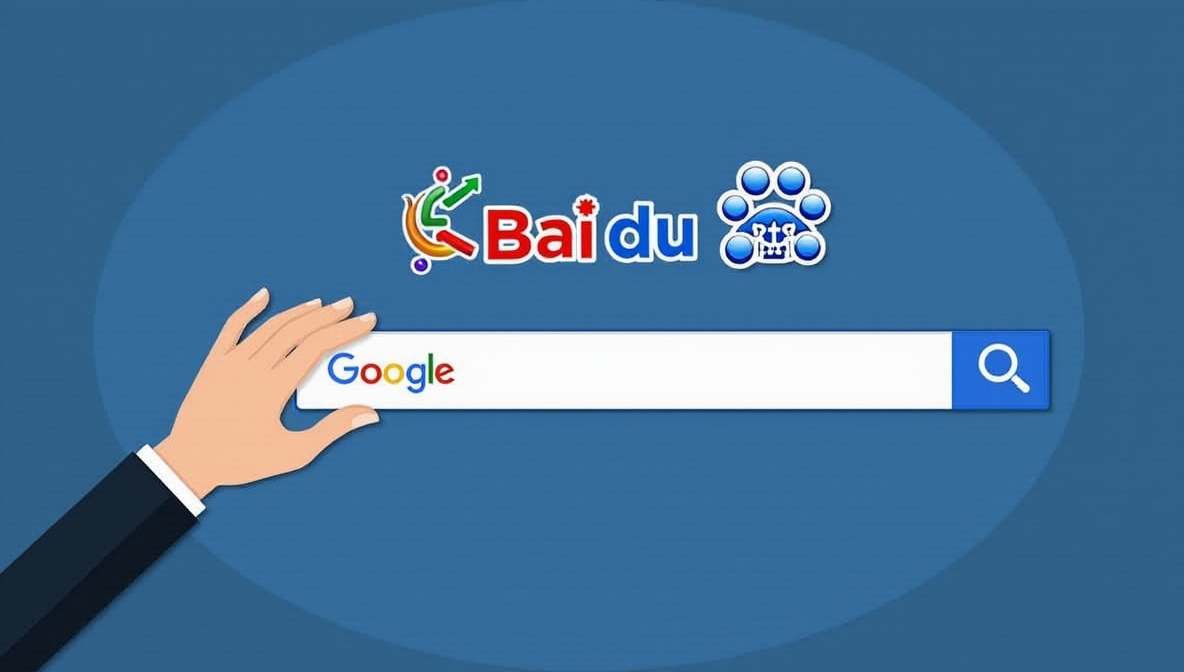
In today’s global digital landscape, search engine optimization (SEO) plays a vital role in driving organic traffic and increasing brand visibility. While Google dominates the majority of the world’s search engine market, Baidu reigns supreme in China, accounting for over 70% of the country’s search engine traffic. For businesses aiming to expand their presence in China, understanding how to optimize for Baidu is crucial.
As Dust Digital Marketing Ltd., we specialize in helping businesses navigate the complexities of SEO, including the unique requirements for optimizing on Baidu. In this guide, we will walk you through the best practices for Baidu SEO, common pitfalls to avoid, and essential tips to help you get your website ranking on Baidu.
What is Baidu?
Baidu is the largest search engine in China and is often referred to as the “Google of China.” It was founded in 2000 and has since become the dominant player in China’s search engine market. Unlike Google, Baidu operates under different rules and guidelines, primarily due to China’s unique internet regulations. For businesses seeking to target Chinese audiences, Baidu is an essential platform to focus on.
Why Optimize for Baidu?

While Google is the dominant search engine in most countries, Baidu holds significant influence in China. With over 900 million active users and a vast market, businesses that wish to succeed in the Chinese market must prioritize Baidu SEO. Here are several key reasons to optimize for Baidu:
- Massive Market Reach: China’s online population is one of the largest in the world, and Baidu serves as the gateway to this market.
- Local Relevance: Baidu’s search results are tailored to local needs and preferences, making it a more relevant platform for Chinese users.
- Compliance with Chinese Regulations: Baidu follows strict government policies, and optimizing for Baidu ensures compliance with local internet regulations.
How to Optimize for Baidu
Optimizing for Baidu requires a different approach than optimizing for Google, as Baidu has distinct ranking factors and algorithms. Here are the key steps to ensure your website is optimized for Baidu:
1. Understand Baidu’s Algorithm
Baidu’s algorithm is tailored to China’s specific internet environment. Some of the key factors Baidu considers when ranking websites include:
- Website Speed: Baidu prioritizes fast-loading websites, as they provide a better user experience.
- Chinese Language and Localization: Websites must be in Chinese, or at least have a Chinese version, to rank well on Baidu. Content should be culturally relevant and target local interests.
- Content Quality: Baidu values high-quality content that addresses the needs of Chinese users. Original, in-depth, and informative content tends to rank higher.
- Backlinks from Chinese Websites: Baidu places a significant emphasis on backlinks from authoritative Chinese websites (such as government sites, news outlets, and local forums).
2. Use Baidu Webmaster Tools
Just like Google, Baidu offers a set of webmaster tools that help you analyze your site’s performance and identify issues. Registering with Baidu Webmaster Tools (also known as Baidu Tongji) is essential to understand how Baidu crawls and indexes your website.
- Submit your Sitemap: Just like Google Search Console, Baidu Webmaster Tools allows you to submit your sitemap. This helps Baidu index your pages more efficiently.
- Track Search Analytics: You can track how your website is performing on Baidu, the search queries driving traffic, and the keywords with the highest ranking potential.
- Monitor Backlinks: Baidu Webmaster Tools also helps you monitor the quality and quantity of backlinks pointing to your site.
3. Focus on Local Hosting and Domain
Baidu tends to favor websites that are hosted within China. If possible, hosting your website on a Chinese server with a .cn domain can help you rank better on Baidu. However, this may not always be practical for international businesses, but it is something to consider if you are targeting the Chinese market specifically.
- China Hosting: Hosting within China ensures that your site loads faster for local users.
- .cn Domain: A .cn domain is a local Chinese domain extension, which Baidu may prefer over a .com or other international domains.
4. Optimize for Mobile
Baidu has a significant mobile user base, and mobile optimization is essential for ranking on Baidu. In fact, mobile optimization is a ranking factor for Baidu, so ensuring your website is mobile-friendly will help improve your chances of ranking higher.
- Responsive Web Design: Make sure your website is designed to be responsive to different screen sizes, especially mobile.
- Mobile-First Indexing: Baidu also prioritizes mobile-friendly websites, so focus on mobile SEO as a critical part of your Baidu strategy.
5. Create Content in Simplified Chinese
Baidu prefers content in Simplified Chinese, as it is the most widely used form of Chinese writing on the mainland. Content in Traditional Chinese or other variants may not rank as well. Ensure that your website content is localized and written in Simplified Chinese to optimize for Baidu.
- Localization of Content: Tailor your content to Chinese culture, interests, and preferences. Avoid directly translating content from other languages and focus on what resonates with local audiences.
- Keywords in Chinese: Make sure to target Chinese keywords that reflect local search behavior. Using Baidu Keyword Planner can help you find the best keywords to target.
6. Improve Website Speed
As mentioned, website speed is a critical factor for Baidu’s rankings. A slow website can harm your rankings and drive visitors away. Ensure that your website is fast and optimized for a seamless user experience.
- Image Compression: Compress images without losing quality to speed up your website.
- Minimize HTTP Requests: Reduce the number of elements that require requests to the server, such as images, scripts, and stylesheets.
- Leverage Browser Caching: Set up caching for repeat visitors to load the site faster.
7. Use Baidu-specific Ads
To further boost your presence on Baidu, you can explore Baidu PPC (Pay-Per-Click) advertising through Baidu Tuiguang. This allows you to display ads on Baidu search results and increase traffic to your site. Combining organic SEO efforts with paid ads can amplify your results.
- Create Targeted Ads: Focus on the Chinese audience by tailoring your ads to their preferences.
- Set a Budget: Like Google Ads, you can set a daily budget for Baidu ads, making it a cost-effective option for increasing traffic.
Table: Key Baidu SEO Factors
| Baidu Ranking Factor | Description | Recommendation |
|---|---|---|
| Chinese Content | Baidu favors content in Simplified Chinese. | Ensure your website is in Simplified Chinese. |
| Website Speed | Fast-loading websites rank higher. | Optimize images and use caching techniques. |
| Backlinks from Chinese Sites | Baidu values local backlinks from Chinese websites. | Focus on acquiring backlinks from reputable Chinese websites. |
| Mobile Optimization | Baidu emphasizes mobile-friendly sites. | Implement responsive design and mobile-friendly pages. |
| Local Hosting and Domain | Baidu prefers sites hosted within China. | Consider using Chinese hosting and a .cn domain. |
| Baidu Webmaster Tools | Use Baidu’s webmaster tools to track performance. | Register and regularly monitor your site’s performance. |
Q&A: How to Optimize for Baidu
Q1: How does Baidu’s algorithm differ from Google’s? Baidu’s algorithm is heavily influenced by local Chinese internet regulations and preferences. For example, Baidu gives more weight to Chinese-language content, local hosting, and backlinks from Chinese websites. It also places a high emphasis on content relevance to Chinese users.
Q2: Can I use Google SEO strategies for Baidu? While many SEO principles are universal, Baidu has specific ranking factors that differ from Google. For instance, Baidu places more emphasis on local content, backlinks from Chinese sites, and compliance with China’s internet censorship regulations.
Q3: How do I submit my website to Baidu for indexing? You can submit your website to Baidu through Baidu Webmaster Tools. Once registered, you can submit your sitemap and monitor how Baidu crawls and indexes your site.
Q4: Does Baidu allow international websites to rank well? Yes, international websites can rank on Baidu, but they must adhere to Baidu’s guidelines, such as having Chinese-language content, local backlinks, and fast-loading pages. Hosting your website in China and using a .cn domain can also help.
Q5: How can I improve my Baidu ad performance? To improve ad performance on Baidu, focus on targeting the right keywords, optimizing your landing pages for user experience, and continuously monitoring and adjusting your campaigns based on Baidu analytics.
Conclusion

Optimizing for Baidu can be a unique challenge due to the search engine’s distinct ranking factors and regulations. However, with the right strategies, businesses can successfully increase their visibility and drive organic traffic from China’s largest search engine. By focusing on local content, improving website speed, building Chinese backlinks, and using Baidu’s tools effectively, you can master how to optimize for Baidu and expand your digital presence in China.
At Dust Digital Marketing Ltd., we specialize in helping businesses enhance their SEO strategies on both global and local search engines, including Baidu. If you’re looking to improve your website’s performance on Baidu, contact us today to learn more about our Baidu SEO services. Visit our website at DustHK.com for more information.
Contact information of Dust Digital Marketing Ltd.
- Website: https://www.dusthk.com
- Email: stan@dustseo.com
- Phone: +852 3575 0844
- WhatsApp: +852 6739 8296
• • Address: Unit B, 12th Floor, Hang Seng Causeway Bay Building, 28 Yee Wo Street, Causeway Bay, Hong Kong

